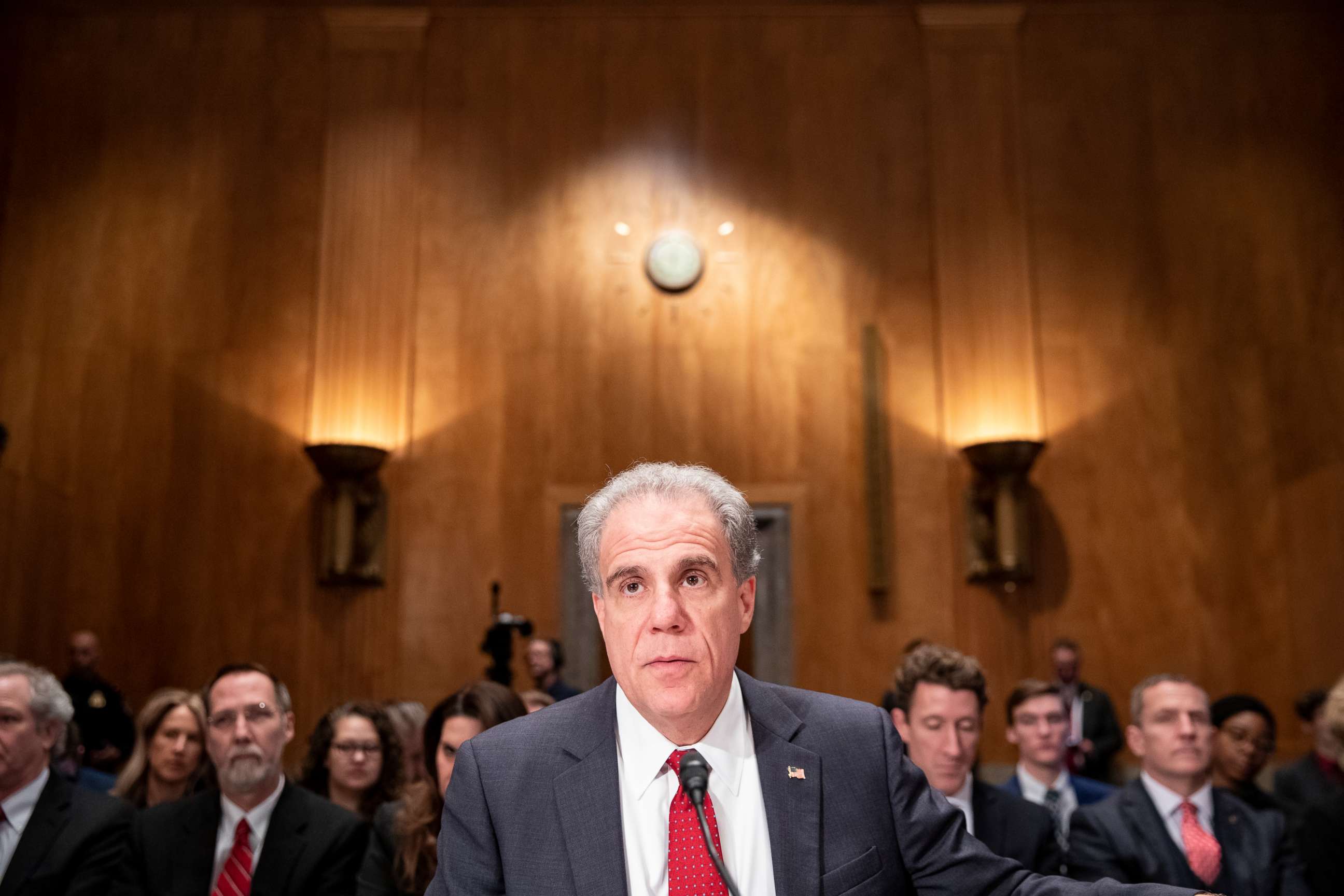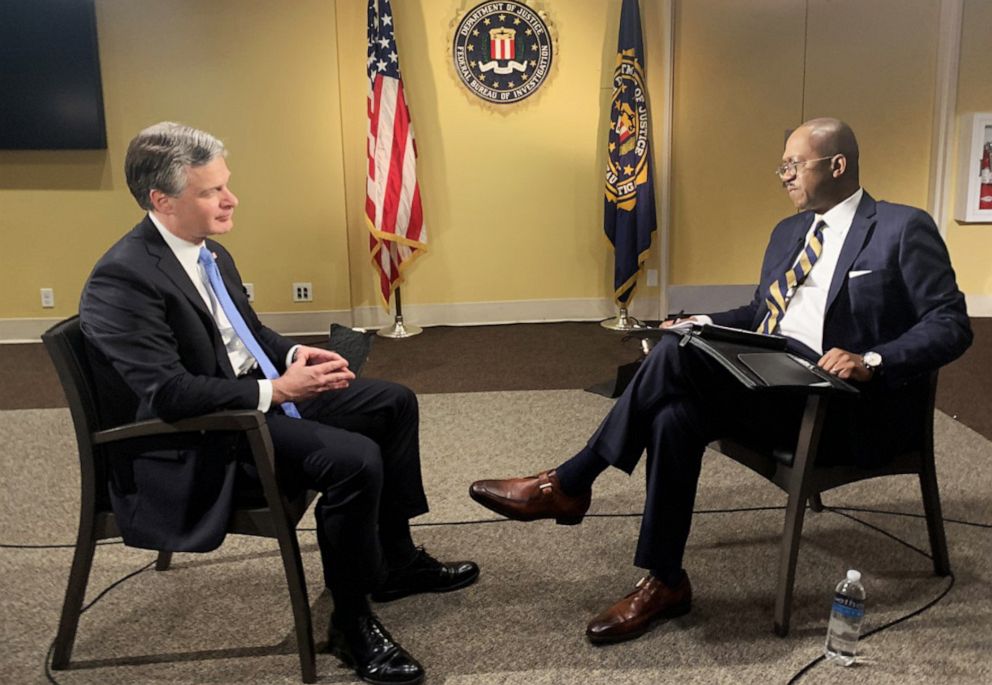DOJ watchdog finds new errors in FBI's handling of surveillance warrants
Warrants included "apparent errors or inadequately supported facts," they said.
A new audit into the FBI's surveillance warrant application process has uncovered a series of errors made by agents seeking wiretaps on subjects of national security investigations, a Justice Department watchdog revealed Tuesday.
DOJ Inspector General Michael Horowitz said the results of audit, which grew from last year's scathing report that scrutinized the surveillance of former Trump campaign aide Carter Page, showed that of the 29 randomly selected Foreign Intelligence Surveillance Act (FISA) applications, 25 included files with "apparent errors or inadequately supported facts."
In the other four cases, the FBI field offices told investigators they either couldn't locate them or "did not know if they ever existed."
Horowitz said his office did not examine, however, whether the identified errors would have had any material effect on the warrants overall.

The audit suggests that issues with how agents have handled the surveillance warrants in recent years, in particular the factual accuracy reviews of the statements they include in court applications, go beyond the errors and omissions identified by Horowitz last year in his investigation of the Carter Page warrants.
While Horowitz found that DOJ has an authorized purpose for investigating whether there was a crime, in January, the Justice Department concluded that two of the surveillance orders targeting Page were not valid because they included "material misstatements" by agents that were seeking them.
The results of the new audit, according to Horowitz's office, indicate that oversight functions -- also known as "Woods Procedures" -- built into the FISA process in 2001 after problems were discovered in several applications for counter-terror investigations, have not proved to be adequate in preventing errors in warrants.
"We do not have confidence that the FBI has executed its Woods Procedures in compliance with FBI policy, or that the process is working as it was intended to help achieve the 'scrupulously accurate' standard for FISA applications," Horowitz said Tuesday in a memo.

In a response to the report, Paul Abbate, FBI associate deputy director, said in a letter that the bureau "fully accepts" the recommendations from Horowitz's office for reforms to the factual accuracy review procedures, which he said further build upon the series of more than 40 reforms ordered by FBI Director Chris Wray after last year's IG report.
"As Director Wray has stressed, FISA is an indispensable tool to guard against national security threats," Abbate said. "But we must ensure that these authorities are carefully exercised and that FISA applications are scrupulously accurate."
Wray told ABC News in an exclusive interview following the release of last year's IG report that he viewed the errors by agents as "below the standard that I expect of our employees."
"In my view, every error and omission is significant and it's something we need to take seriously," he said.




